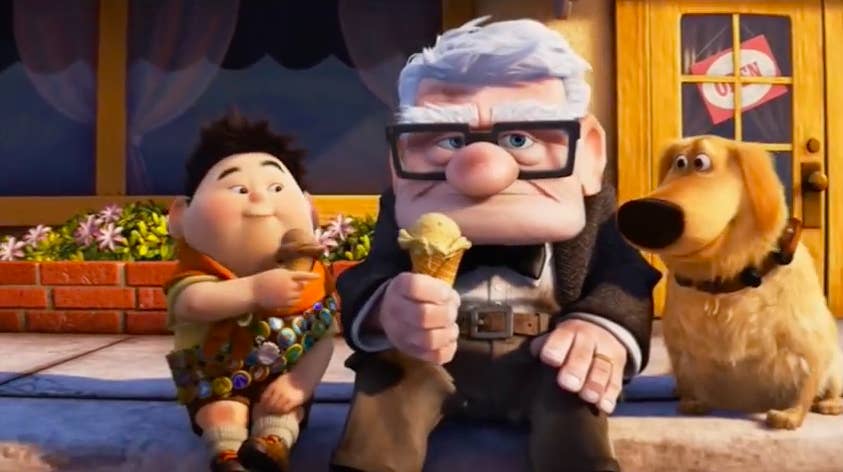Identity is influenced by the internal perspective of oneself as well as others’ external perspectives of someone else. When diving deeper into this concept of identity, I thought of the way that younger people perceive people/themselves compared to the way older people perceive themselves/others. This is how I developed the sub concept of the external/internal perspectives of age differences/maturity and its influence on identity. This concept can be compared with internal and external perspectives since the way younger people perceive older people (and vice versa) is different. Also, the way someone with a different perspective of identity views someone else can change that person’s view of themselves, too. To explain this concept, I thought of the Disney Pixar movie, UP. It is a movie about a young Boy Scout (Russell), and an elderly man (Mr. Fredricksen) embarking on a journey to find “Paradise Falls.” This movie begins with Russell coming up to Mr. Fredricksen’s porch and asking if he needs any assistance. Mr. Fredricksen gets rid of Russell by sending him on the hunt for a “snipe.” After shutting the door on Russell, Mr. Fredricksen begins his plan to sail away in his house to find “Paradise Falls” which was a dream of Mr. Fredricksen’s deceased wife, Ellie. After beginning the journey, Mr. Fredricksen realizes that he has a stowaway, Russell. This leaves the old man no choice but to bring Russell along on this journey with him. Throughout the journey, Russell and Mr. Fredricksen meet some interesting characters, Doug and Kevin, get into a quarrel with Mr. Fredricksen’s childhood hero because of Kevin (the snipe), and make memories that allow the two to form a bond of friendship. At the end of the movie, Mr. Fredricksen and Russell help Kevin get home safely and then return home themselves. Mr. Fredricksen shows up to Russell’s Boy Scout ceremony and supports him, initiating the beginning of a life-long bond between the two.
The movie UP shows how younger people’s perspectives influence older people’s perspectives of themselves through the interactions between Mr. Fredricksen and Russell. In the beginning of the movie, Mr. Fredricksen was bitter towards Russell because of his unhappiness since his wife, Ellie, has passed away. Also, Mr. Fredricksen sees his life as not having much purpose anymore since Ellie is gone. Despite Mr. Fredricksen’s cruelty towards Russell, Russell is persistent in earning his badge, so he overlooks the bitterness of the old man and continues to try and help him. Towards the middle of the movie, Russell begins to change Mr. Fredricksen. Russell doesn’t see Mr. Fredricksen as cruel or bitter; instead, he sees him as a kind old man that Russell wants to be friends since Russell shares information about his life with Mr. Fredricksen. This causes Mr. Fredricksen to perceive himself differently. Mr. Fredricksen begins to see himself as a father or friend to Russell (since Russell doesn’t have a father figure in his life) which changes his identity into becoming a nicer person. By the end of the movie, Russell’s perception of Mr. Fredricksen has changed himself into a “new man.” The old man has found a new purpose in life, to become a father figure to Russell, which has changed how he perceives himself as well as his identity. Instead of being bitter towards everyone, Mr. Fredricksen has learned to see the good in people from Russell’s example of constantly seeing the good in the old man. The movie UP provides a great example of how the difference in age/maturity influences internal/external perspectives of identity.


UP. Directed by Pete Docter, performances by Ed Asner, Jordan Nagai, Christopher Plummer, and Bob Peterson. Walt Disney Pictures Pixar Animation Studios, 2009.